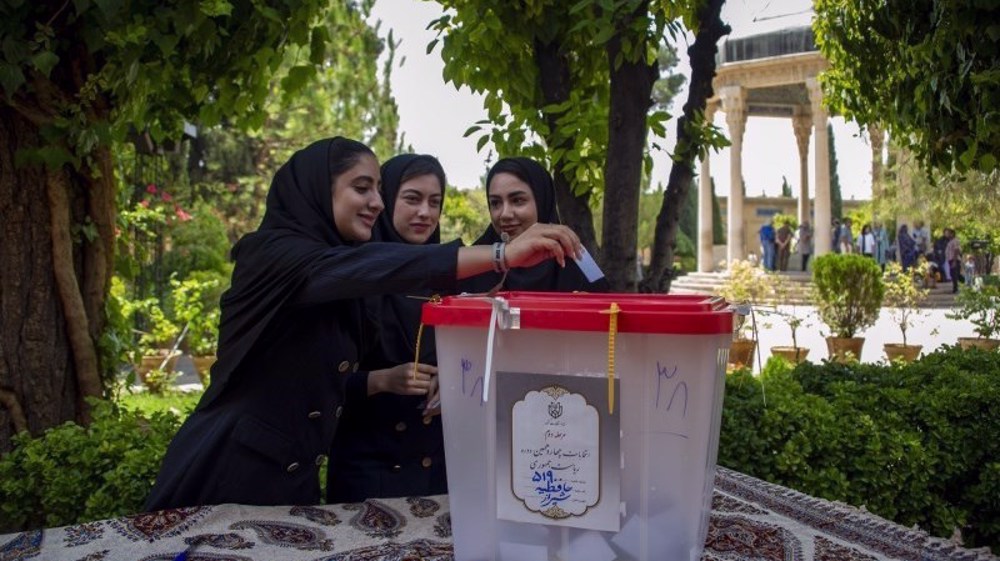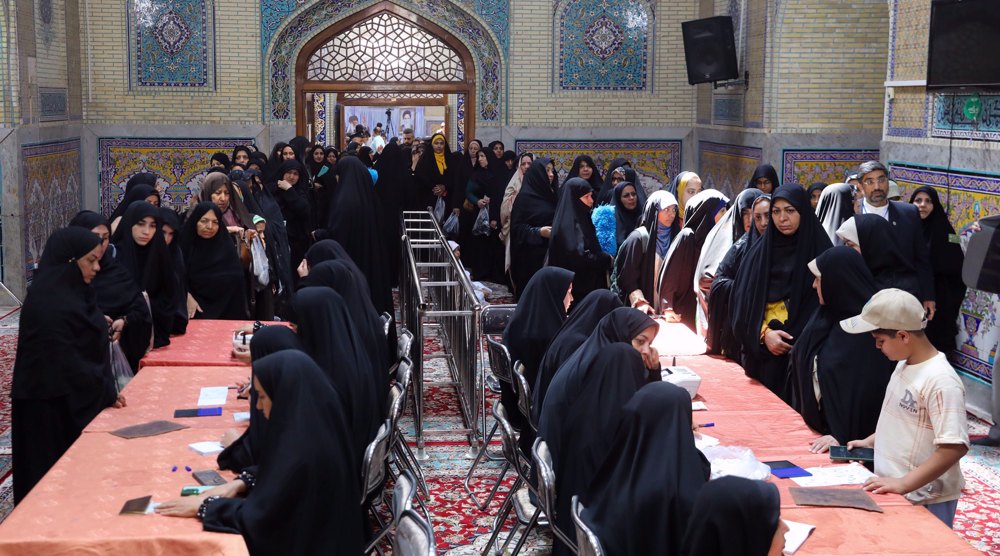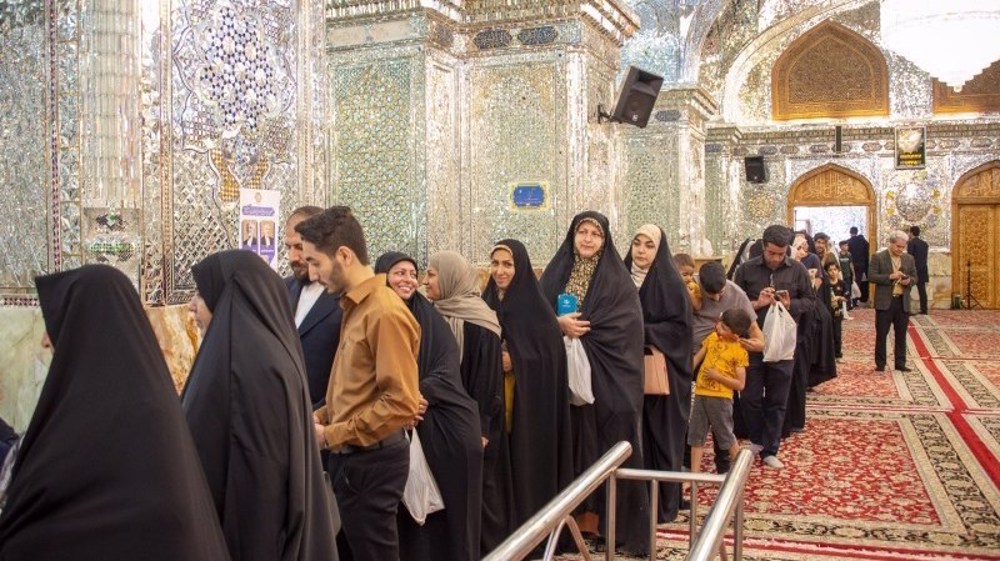The voting hours can be extended by Interior Minister Ahmad Vahidi if required.
Last week, the minister extended the time for six hours as the polls closed at midnight.
According to the law, Iran's elections should be held on Fridays and hence the time cannot be extended beyond midnight.
Millions of Iranians, inside and outside the country, are casting their ballots to choose the next president in the election runoff. The Interior Ministry says the participation has increased compared to the previous round.
Polling stations opened at 8 a.m. local time (0430 GMT) on Friday and were scheduled to close at 6:00 p.m. (1430 GMT), with the possibility of extensions by the Interior Ministry.
Mohsen Eslami, spokesperson for the national election headquarters, told reporters in a briefing at around 3:00 p.m. local time that people's participation has increased compared to the previous round.
The voting process is going smoothly at around 59,000 polling stations nationwide, he said.
"So far, we've seen more people coming in to vote than in the first round. We're optimistic that this trend will keep up," the spokesperson added.
 A young girl, accompanied by her friends, cast her vote in Iran's presidential election runoff on July 5, 2024, at the iconic Tomb of Hafez in Shiraz, Fars Province. (Photo by Tasnim)
A young girl, accompanied by her friends, cast her vote in Iran's presidential election runoff on July 5, 2024, at the iconic Tomb of Hafez in Shiraz, Fars Province. (Photo by Tasnim)Meanwhile, an official with the Guardian Council, which oversees the election, hailed the election process.
"Thank God, we are witnessing a good trend in the election and problems have not been serious," Siamak Rahpeyk, deputy head of the Guardian Council, said on Friday afternoon while visiting the election headquarters in the Interior Ministry.
"I assess the participation to be good and hope that this trend would continue," he said.
 Dozens of women stand in line to cast their votes in Iran's presidential election runoff on July 5, 2024, at Imam Reza Shrine in Mashhad. (Photo by news.razavi.ir)
Dozens of women stand in line to cast their votes in Iran's presidential election runoff on July 5, 2024, at Imam Reza Shrine in Mashhad. (Photo by news.razavi.ir)The second round of voting comes after the June 28 election where Masoud Pezeshkian and Saeed Jalili were the leading candidates, but neither won a majority.
Pezeshkian has a background as a health minister and is a legislator from Tabriz in the northwest. Jalili holds experience as a diplomat and the chief nuclear negotiator.
Over 24 million people voted on June 28.
 People waiting in line to cast their ballots for Iran's presidential election runoff on July 5, 2024, at Shah Cheragh mausoleum in Shiraz, Fars Province. (Photo by Tasnim)
People waiting in line to cast their ballots for Iran's presidential election runoff on July 5, 2024, at Shah Cheragh mausoleum in Shiraz, Fars Province. (Photo by Tasnim)This election will choose a new president after President Raisi passed away in a helicopter crash on May 19.
Initial results are expected to be announced on Saturday.
The election headquarters says 61 million people are allowed to vote.
Some 344 polling stations worldwide are organized by Iran's foreign ministry.
Increased turnout outside Iran
The spokesman for Iran's Foreign Ministry also pointed to the reports that indicate increased participation in the polling stations outside Iran.
"Reports from ambassadors and heads of Iranian missions abroad indicate that the turnout of Iranians overseas during this election period has been magnificent," Nasser Kan'ani told reporters on Friday.
The embassies and Iranian missions also report that conditions have been favorable for Iranians abroad to take part in the elections, with no significant issues so far, he said.
The nation's turnout enhances the nation's authority on both regional and international stages, he said, hoping that this strong participation will herald the beginning of a new era of strengthening the country's influence and power.